Premium Only Content
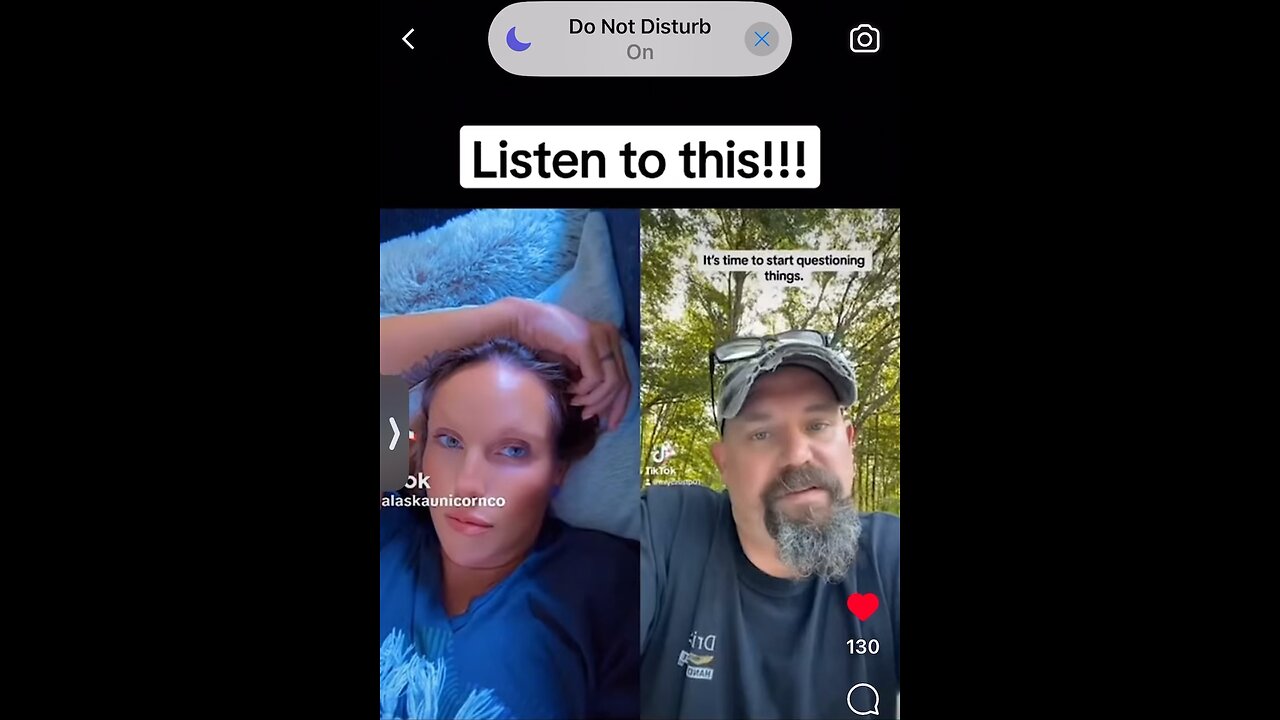
Conspiracy theorists! Must listen!!
Conspiracy;
An agreement between two or more persons to engage jointly in an unlawful or criminal act, or an act that is innocent in itself but becomes unlawful when done by the combination of actors.
Conspiracy is governed by statute in federal courts and most state courts. Before its Codification in state and federal statutes, the crime of conspiracy was simply an agreement to engage in an unlawful act with the intent to carry out the act. Federal statutes, and many state statutes, now require not only agreement and intent but also the commission of an Overt Act in furtherance of the agreement.
Conspiracy is a crime separate from the criminal act for which it is developed. For example, one who conspires with another to commit Burglary and in fact commits the burglary can be charged with both conspiracy to commit burglary and burglary.
Conspiracy is an inchoate, or preparatory, crime. It is similar to solicitation in that both crimes are committed by manifesting an intent to engage in a criminal act. It differs from solicitation in that conspiracy requires an agreement between two or more persons, whereas solicitation can be committed by one person alone.
Conspiracy also resembles attempt. However, attempt, like solicitation, can be committed by a single person. On another level, conspiracy requires less than attempt. A conspiracy may exist before a crime is actually attempted, whereas no attempt charge will succeed unless the requisite attempt is made.
The law seeks to punish conspiracy as a substantive crime separate from the intended crime because when two or more persons agree to commit a crime, the potential for criminal activity increases, and as a result, the danger to the public increases. Therefore, the very act of an agreement with criminal intent (along with an overt act, where required) is considered sufficiently dangerous to warrant charging conspiracy as an offense separate from the intended crime.
According to some criminal-law experts, the concept of conspiracy is too elastic, and the allegation of conspiracy is used by prosecutors as a superfluous criminal charge. Many criminal defense lawyers maintain that conspiracy is often expanded beyond reasonable interpretations. In any case, prosecutors and criminal defense attorneys alike agree that conspiracy cases are usually amorphous and complex.
The Elements of Conspiracy Agreement
The essence of conspiracy is the agreement between two or more persons. A single person acting alone cannot be guilty of conspiracy.
Quiz Show Conspiracies
In the 1950s, the new medium of television was fast becoming a staple in U.S. households, and quiz shows, with their low production costs and high-stakes drama, were enjoying immense popularity. Contestants on quiz shows played until they lost; some competed for months and won tens of thousands of dollars. The quiz show concept of rewarding intelligence with instant wealth appealed to the U.S. public and inspired many to seek an invitation to play.
In May 1958, Edward Hilgemeier was in the studio audience of the quiz show "Dotto" when he was approached by a "Dotto" producer. The producer asked if Hilgemeier would like to compete on the show. Hilgemeier, an aspiring actor, accepted the offer. On May 20, he went to the "Dotto" set as a standby contestant.
Marie Winn, a student at Columbia University, was the defending champion of "Dotto." A charming, animated native of Czechoslovakia, the twenty-one-year-old Winn had won "Dotto" on two consecutive nights. As Hilgemeier waited for his possible turn against Winn, he got the impression that studio personnel were unduly familiar with the woman.
Winn's first challenger that day was Yeffe Kimball Slatin. Hilgemeier watched as Winn defeated Slatin with ease; Winn seemed to have every answer at hand. After the contest between Winn and Slatin, Hilgemeier returned to the contestants' dressing room, where he discovered a notebook belonging to Winn that appeared to contain answers to "Dotto" questions. Hilgemeier notified Slatin, and the two returned to the dressing room, where one of them tore the apparent answer sheet out of Winn's notebook.
That night, after speaking to Slatin's lawyer, Hilgemeier and Slatin went to the "Dotto" offices, where they spoke with the show's producers. The "Dotto" producers promised compensation to both Hilgemeier and Slatin. Slatin agreed to stay quiet about the affair for a nominal sum of money from "Dotto," but Hilgemeier, fearing for his reputation, refused. Hilgemeier took his information to Manhattan district attorney Frank Hogan and assistant district attorney Joseph Stone.
Initially, the Manhattan district attorney's office was skeptical of Hilgemeier's complaint. The rigging of quiz shows was, after all, not illegal. Shortly into the investigation, however, it became apparent to Hogan and Stone that a widespread conspiracy was in place to hide the truth from the public—and conspiracy to commit Fraud wasillegal.
The Manhattan district attorney's office convened Grand Jury hearings, and a subcommittee of the U.S. House of Representatives held congressional hearings on the quiz shows' practices. Many producers and contestants lied to the grand jury and the congressional subcommittee about their role in quiz show trickery. On October 14, 1959, their elaborate web of deceit began to unravel when Charles Van Doren, a Columbia University professor, admitted to the subcommittee his involvement in a rigged quiz show, "Twenty-One." (This incident was the basis of Robert Redford's 1995 film Quiz Show.)
Quiz show producers and contestants eventually admitted their subterfuge to authorities. What emerged were stories of how favored quiz show contestants were coached to agonize and sweat over answers they already knew. On August 30, 1960, the U.S. Congress passed a bill that made giving or receiving assistance on a quiz show a federal crime. The bill was signed into law by President dwight d. eisenhower two weeks later. Now, under 47 U.S.C.A. § 509, it is a federal crime to rig quiz shows with the intent to deceive the listening or viewing public. Under 18 U.S.C.A. § 371, a conspiracy to engage in prohibited practices regarding radio and television quiz shows is also a federal crime.
-
 52:26
52:26
MYLUNCHBREAK CHANNEL PAGE
1 day agoAngels Built the Old World?
9.01K24 -
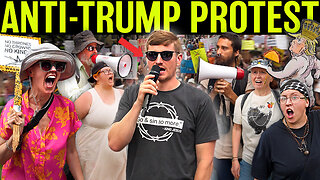 53:24
53:24
Nicholas Bowling
3 hours ago $0.01 earnedStreet Preaching at Anti-Trump "No Kings" Protest!
34 -
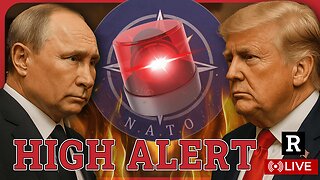 1:26:06
1:26:06
Redacted News
2 hours agoHIGH ALERT! NATO GLOBALISTS PUSHING WAR WITH PUTIN USING FALSE FLAGS, COL. MACGREGOR LIVE | REDACTED
108K69 -
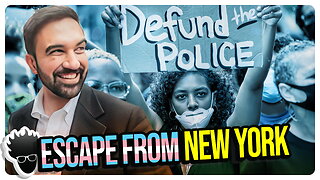 1:14:14
1:14:14
vivafrei
4 hours agoNYC Might Get a Socialist "Queer"-Obsessed, Defund-the-Police Mayor! Fake News & Fake Leaks? & More!
120K58 -
 LIVE
LIVE
Dr Disrespect
6 hours ago🔴LIVE - DR DISRESPECT - THE BEST IS BACK!
1,978 watching -
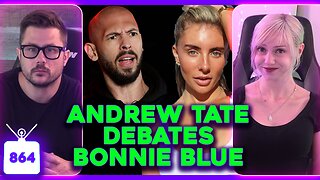 2:07:16
2:07:16
Pop Culture Crisis
3 hours agoAndrew Tate Vs Bonnie Blue, Katy Perry Mid-Life Crisis, Kim Kardashian Becomes BRATZ Doll | Ep. 864
28.6K15 -
 LIVE
LIVE
freecastle
6 hours agoTAKE UP YOUR CROSS- Securing OUR borders...YES, It's a GOOD THING!
399 watching -
![Karoline Leavitt Says FBI Investigating Leaker of ‘Top Secret’ Intel Assessment [EP 4609]](https://1a-1791.com/video/fww1/9f/s8/1/n/6/H/W/n6HWy.0kob-small-Karoline-Leavitt-Says-FBI-I.jpg) 1:01:24
1:01:24
The Pete Santilli Show
7 hours agoKaroline Leavitt Says FBI Investigating Leaker of ‘Top Secret’ Intel Assessment [EP 4609]
34 -
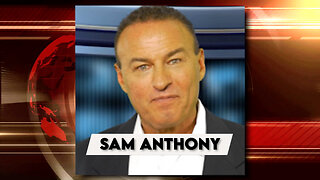 27:03
27:03
Take FiVe - His Glory
1 day agoSam Anthony on Revolutionizing News: The Rise of Citizen Journalism | Take FiVe
4.87K -
 13:42
13:42
The Shannon Joy Show
51 minutes ago🔥 MAHA Is a Joke — Wearables, Stakeholders & the Kennedy Sellout 🔥